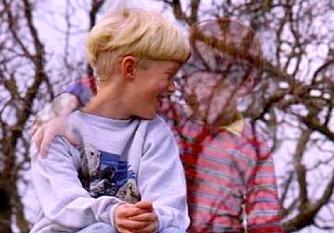What happens when the imaginary people in your story take over?

Imaginary people shouldn’t influence your life. But if you’re a writer or reader, they definitely do. Case in point: Me. I was working on my second novel, Feast, when this character appeared out of nowhere. She wasn’t in my current novel, she wasn’t in anything I’d ever written before. I tried to ignore her but I just couldn’t, because oh my gosh, did she ever have a voice and a story to tell.
She haunted me. Until I stopped working on my current work-in-progress long enough to write down her first chapter. Ten pages later, I’d fallen in love.
She was Kira Callahan, the main character in Fathom, my debut YA paranormal novel coming out on October 1. And that first chapter is almost exactly the same as the day I wrote it. If you’re curious, you can read it here.
Oddly enough, the appearance of this new character not only temporarily stalled my second novel—it changed my writing career. Up until then, I’d been the author of adult novels only. While Afterlife and Feast can certainly be read by teenagers—there’s nothing in there they can’t handle—those books are definitely intended for mature audiences, with themes and plots that deal with some heavy issues.
But now I was suddenly an author who was writing young adult stories.
And I was loving it.
I had already discovered that I loved reading YA. My shelves were lined with tomes like Speak by Laurie Halse Anderson, The Forests of Hands and Teeth by Carrie Ryan, Tithe by Holly Black and The Body Finder by Kimberly Derting. I just never expected that this fascination with young adult literature would lead to me writing it.
While it may seem like YA is a simpler genre, and that it’s both easier to read and to write, that’s not necessarily true. I soon learned that YA contains deep themes, just like adult books. At the same time, YA often has a literary edge not often found in adult books. I think it was this combination of beautiful writing and powerful coming-of-age stories that hooked me. There’s a universal appeal found in a tale written about first love, for it both embraces and transcends the teenage market.
But I wasn’t thinking about markets or universal appeal when I started writing Kira’s story. I was traveling back through time, walking through the halls of high school again, reliving that feeling of never quite fitting in, of never being pretty enough or smart enough, of feeling awkward and insignificant. It was a painful journey—all writing is, if done well. Without even realizing it, I chose a play list that I listened to when I was 16, a fact that surprised me when I discovered what I’d been subconsciously doing. I’d been allowing the music to take me back to my raw teenage self. Some of those songs I’d never been able to listen to as an adult—they brought back too many unpleasant memories.
So, apparently, this imaginary person—who appeared out of nowhere—changed my writing career and then led me down a path likened to deep therapy. I walked over glass-embedded ground toward a hazy future. Following after someone who wasn’t real.
In the process, I came to know myself better. I discovered that teenage me was stronger than I’ve given her credit. Like Kira, I survived some difficult situations and came out of them determined. And just like Kira, one of the things that helped me along the way was writing poetry.
I stopped working on one book to write down the story of an imaginary character who was haunting me.
Perhaps, if you read her story, she will haunt you too.
